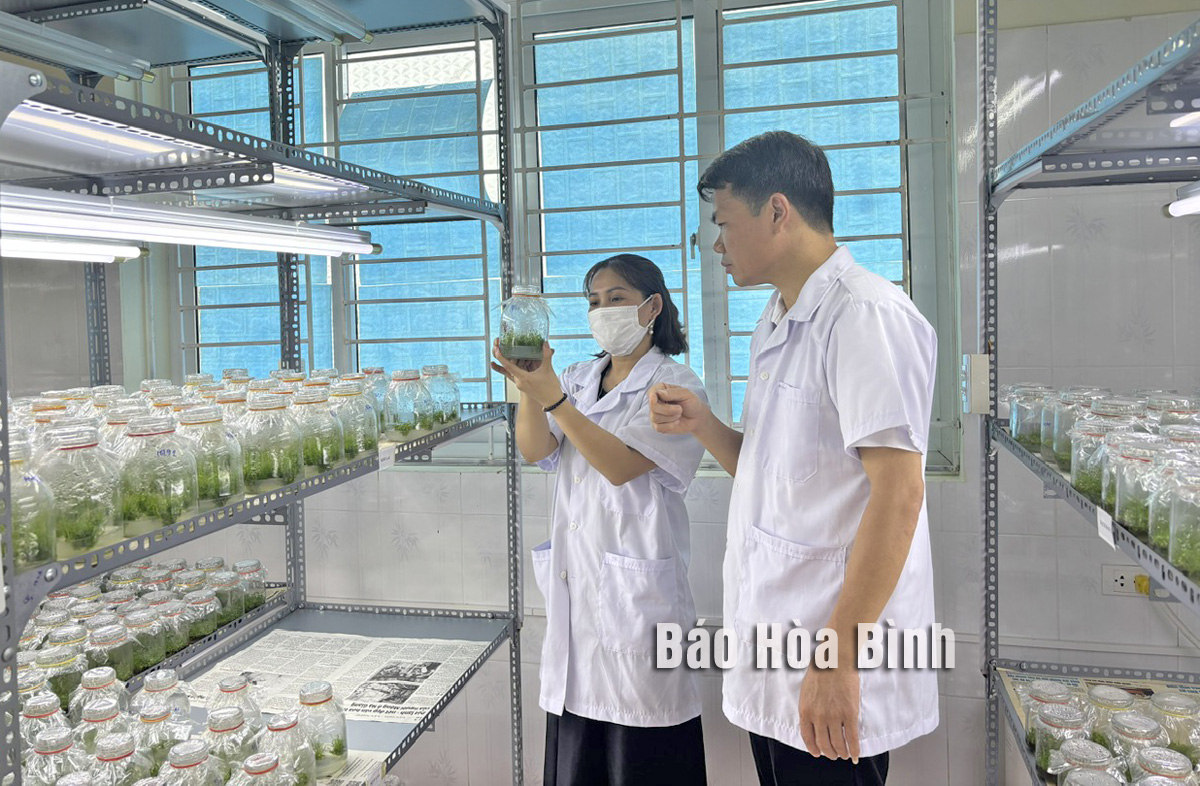
Hoa Binh province is steadily advancing its agricultural sector through the adoption of high-tech solutions, seen as a sustainable path for long-term development.

The Centre for Crop, Livestock, and Aquatic Breeds under the Department of Agriculture and Environment develops high-quality plant varieties using tissue culture methods.
To date, the province has approved three high-tech farming
zones and 11 specialised production areas, focusing on key local products.
Among the most effective methods applied is plant tissue culture, which allows
for rapid, disease-free propagation of various crops, including sugarcane,
medicinal herbs, and high-value vegetables and flowers. This method has also
supported the province’s citrus replanting efforts by producing clean,
high-quality seedlings.
Nguyen Van Hung, Director of the Center for Crop, Livestock, and Aquatic Seed
Production, stated tissue culture technology is a step forward in high-tech
agriculture, enabling farmers to proactively prepare economically valuable crop
varieties for the market, raising awareness of modern farming models, thus
allowing for the expansion of scale and economic efficiency in cultivation
amidst the adverse impacts of climate change.
The province now has around 150 certified farming facilities using VietGAP,
GlobalGAP, or organic practices across 2,300 hectares of crops, 200,000 sq.m of
aquaculture, and 1,600 tonnes of meat annually.
About 120 livestock farms use modern systems such as enclosed barns and
automated feeding. Water-saving irrigation is also widely applied on nearly
1,000 hectares of upland crops.
Private firms have played a significant role. Hoan Phuc Hoa Binh Co., for
example, has invested in US standard greenhouses to grow orchids using fully
automated climate and irrigation systems. The company cultivates over 50 orchid
varieties through tissue culture techniques.
To facilitate hi-tech application, the agriculture department has developed
digital platforms for pest monitoring and soil suitability mapping. It is also
issuing planting area codes aligned with national traceability systems.
Six high-tech agricultural projects have been implemented, alongside dozens of
science and technology initiatives, including projects focusing on
biotechnology, drip irrigation, cold storage, and processing of local
specialties.
Local authorities highlight the need to prioritise key crops and livestock for
scaling up technology use. A value chain approach and increased private sector
engagement are also seen as essential to expanding high-tech farming across the
province.
In Lac Thuy district, communes have been succeeded in promoting their One Commune-One Product (OCOP) products while others are still struggling to position their typical farming products in market. Some communes in the district still fail to have their products met OCOP programme’s requirements, while others have seen their certifications expired.
The inspectorate agency of Hoa Binh province has issued Official Dispatch No. 1090/TTr-PCTN to provincial departments, agencies, localities, business associations, enterprises, and investors regarding measures to improve informal component indexes of the Provincial Competitiveness Index (PCI).
Hoa Binh is taking concrete steps to improve its investment environment, with a strong focus on supporting businesses, settling obstacles for strategic investors, and creating opportunities for robust development in the coming years.
Under the blazing early summer sun, the construction site of Nhuan Trach Industrial Park (IP) in Luong Son district is abuzz with activities from dawn to dusk, a testament to the determination of the investor to meet their construction targets on schedule.



